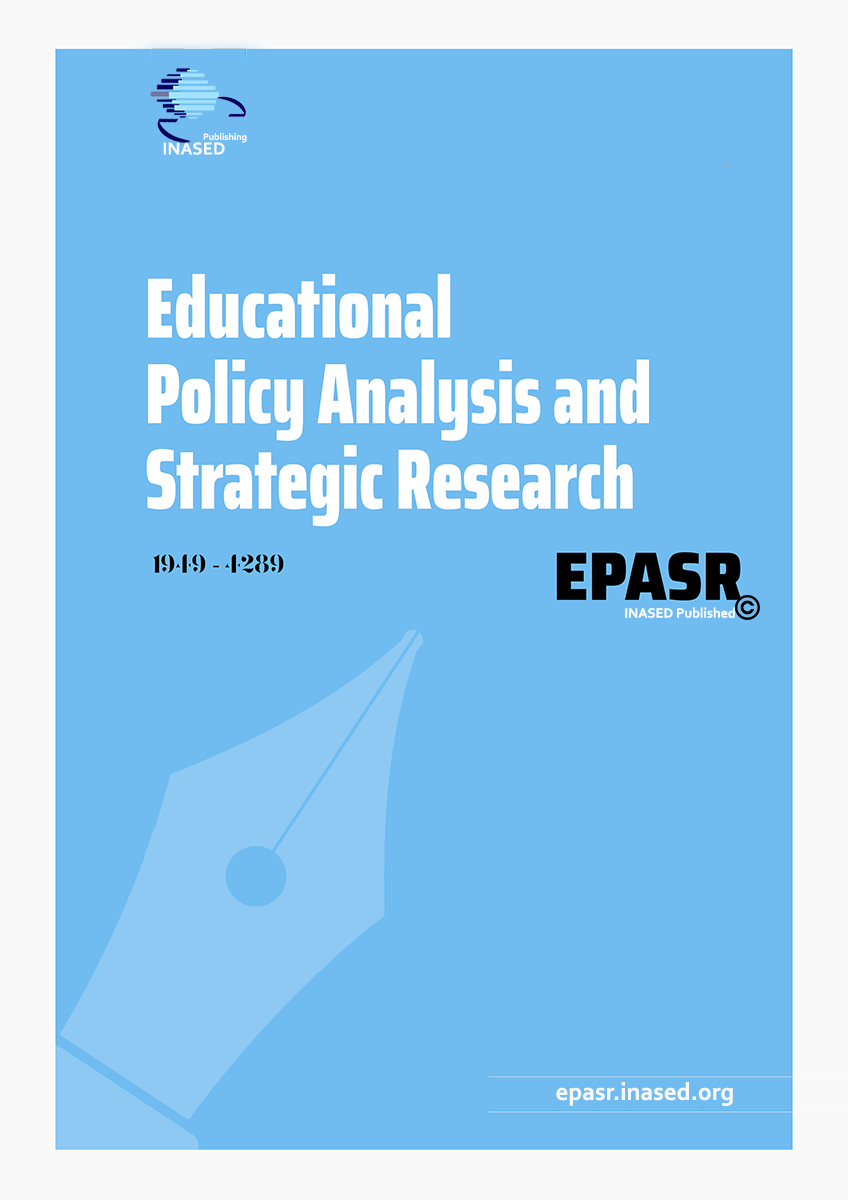Original article | Educational Policy Analysis and Strategic Research 2013, Vol. 8(1) 25-37
Conceptual and Psychometric Properties of a Self-efficacy Perception Scale Based on Teaching Turkish as a Foreign Language
Cavus Sahin, Mustafa Yunus Eryaman, Tugba Kocer & Omer Kocer
pp. 25 - 37 | Manu. Number: epasr.2013.002
Published online: January 01, 2013 | Number of Views: 162 | Number of Download: 801
Abstract
The main purpose of this descriptive research study is to investigate the conceptual and psychometric properties of a self-efficacy perception scale developed for determining self-efficacy perception of 3rd and 4th grade Turkish pre-service teachers, who took Turkish as a Foreign Language (TFL) course theoretically in undergraduate level, towards teaching TFL. As a result of analysis of the related literature and written responses of participants, researchers initially formed an item-pool by considering that they best suit to TFL context. Then, they adapted the items into 5-point Likert scale. The current instrument was administered to 176 pre-service Turkish teachers with a random sampling design. The repetitive statistics showed that the instrument has three factors with 25 items that measure the self-efficacy of participants. The factors which have been identified in the instrument possess the construct validity and psychometric properties of internal consistency. The reliability and validity of the scale were analyzed with SPPS 17.0. According to exploratory factor analysis results for maintaining construct validity of the scale, factor values of the scale changed between 0.57 and 0.82, and total variant of the scale was found to be 70.379 %. As for the Kaiser-Meyer-Olkin (KMO) measuring of sampling adequacy and Bartlett‟s test of sphericity, KMO is found to be 0.95 being greater than 0.60 and Bartlett‟s test is large with Chi-square value (χ2(300) = 4143.5; p< ,0001) and significant at 0.000. As for reliability, the results showed that the items of scale in terms of item-total correlation changed between 0.45 and 0.84, and the total internal reliability coefficient of the scale (Cronbach‟s Alpha) was calculated as 0.972. Additionally, the two scholars gave their positive opinions in favor of the scale for face validity.The results indicates that the scale has the validity and reliability. Furthermore, the findings of the study confirmed that this scale had validity and reliability that could be used in TFL context for exploring pre-service teachers‟ self-efficacy perception towards teaching TFL.
Keywords: -
| How to Cite this Article? |
|---|
|
APA 6th edition Harvard Chicago 16th edition |


